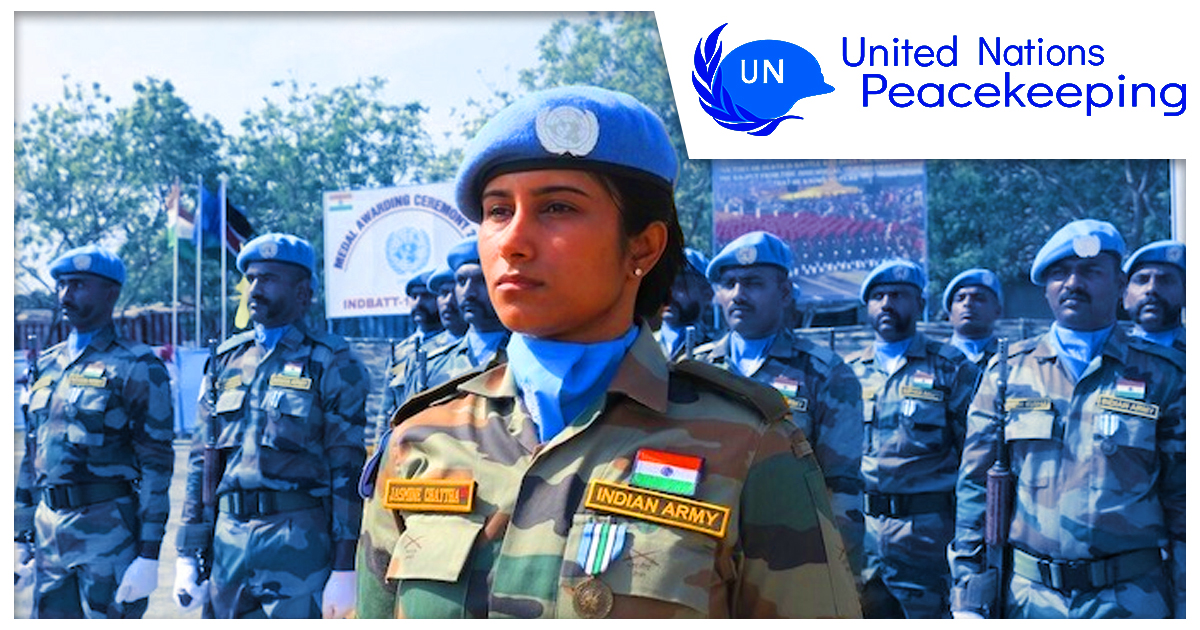UN Peacekeeping:
The United Nations Peacekeeping (UNPKO) is a crucial instrument deployed by the UN to assist countries ravaged by conflict in transitioning towards lasting peace. Established in 1948, UN Peacekeeping has evolved significantly, with over 70 missions undertaken and over two million personnel deployed
Role of Peacekeeping Operations
Peacekeeping missions encompass a diverse range of activities, including:
- Monitoring and Observation: Peacekeepers act as neutral observers, monitoring ceasefire agreements, human rights violations, and election processes.
- Protection of Civilians: Safeguarding civilians from violence is a core mandate, achieved through patrols, establishing safe zones, and deterring attacks.
- Supporting Peace Agreements: Peacekeepers assist parties in implementing peace agreements, including disarmament, demobilization, and reintegration (DDR) of combatants and promoting political dialogue.
- Facilitating Humanitarian Assistance: Peacekeepers create a secure environment for humanitarian organizations to deliver aid to conflict-affected populations.
- Promoting Human Rights and Rule of Law: Missions can support the development of national human rights institutions and the justice system.
- Quick Impact Projects: Peacekeeping missions undertake small-scale infrastructure projects to improve basic services and foster community trust.
Three Basic Principles of UN Peacekeeping
UN Peacekeeping operates under three fundamental principles:
- Consent of the Parties: Peacekeeping missions are only deployed with the consent of the host government and parties to the conflict.
- Impartiality: Peacekeepers act as neutral intermediaries, not taking sides in the conflict.
- Use of Force: Force is only used in self-defense or defense of the mission’s mandate.
International Day of Peacekeepers
May 29th is designated as the International Day of UN Peacekeepers. This day honors the contributions of UN peacekeepers and commemorates those who have lost their lives while serving
Dag Hammarskjöld Medal
Named after the late UN Secretary-General, the Dag Hammarskjöld Medal is a posthumous award presented to military, police, and civilian personnel who lose their lives while serving in a peacekeeping mission
Captain Mbaye Diagne Medal
Established in 2014, the Captain Mbaye Diagne Medal recognizes exceptional courage displayed by military, police, and civilian personnel in the protection of civilians
India and Peacekeeping
India has been a leading contributor to UN Peacekeeping since its inception. It has the highest cumulative number of troops contributed to UN missions India’s commitment is rooted in its belief in multilateralism and the peaceful resolution of conflicts.
UN Military Observer Group In India And Pakistan (UNMOGIP)
Established in 1949, UNMOGIP is the longest-running UN peacekeeping mission. Its mandate is to observe and report on ceasefire violations along the Line of Control (LoC) in Kashmir
India as a Contributor
India’s contributions to UN Peacekeeping extend beyond troop deployment. India also provides:
- Police personnel: Indian police officers bring expertise in law and order and community policing to peacekeeping missions.
- Civilian experts: India deploys civilian experts in various fields like administration, election observation, and human rights.
- Financial contributions: India is one of the largest financial contributors to UN peacekeeping operations.
Challenges of UN Peacekeeping
Despite its successes, UN Peacekeeping faces challenges:
- Security Threats: Peacekeepers increasingly operate in complex and volatile environments, leading to casualties.
- Resource Constraints: Funding shortfalls can hamper the effectiveness of missions.
- Accusations of Bias: Peacekeeping missions can be criticized for perceived bias or inaction in protecting civilians.
Looking Ahead: The Future of UN Peacekeeping
The UN is constantly adapting peacekeeping to meet evolving challenges. Key areas of focus include:
- Strengthening protection of civilians: Ensuring the safety of civilians remains a top priority.
- Enhancing mission effectiveness: Improving training, equipment, and mandates to better address complex situations.
- Enhancing partnerships: Collaboration with regional organizations and troop-contributing countries is crucial.
Conclusion
UN Peacekeeping plays a vital role in promoting international peace and security. India’s significant contributions to peacekeeping missions reflect its commitment to a peaceful world order.





